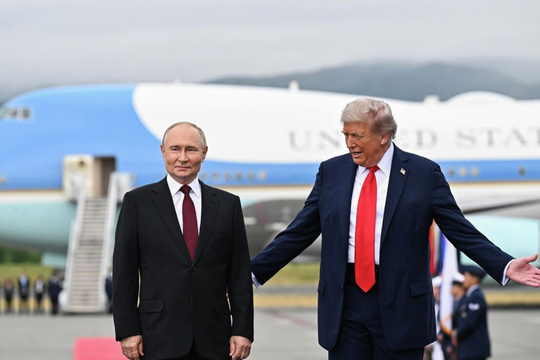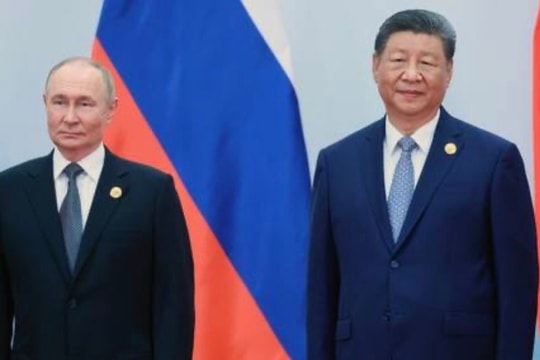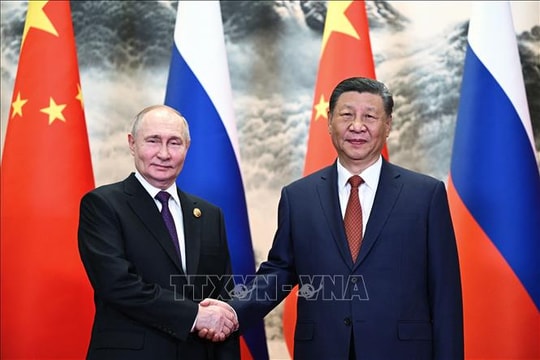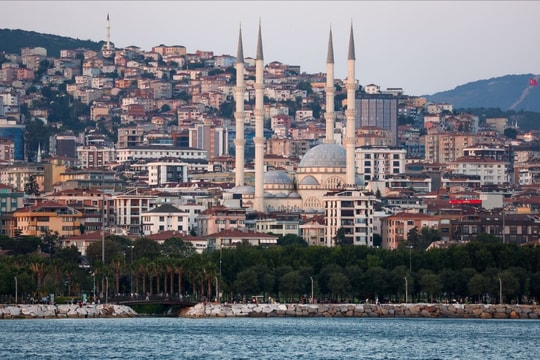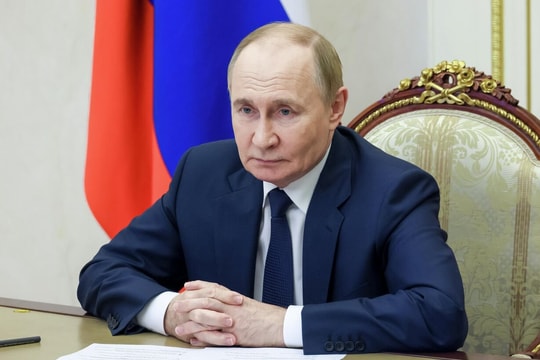Geopolitical rivalry will shape the world in 2018
Global crises and power struggles will have a major impact on the geopolitical landscape of the world in 2018.
 |
The world may witness fierce competition between superpowers in 2018. Photo: ValueMarket. |
The world has just experienced a turbulent 2017, but will welcome some good news in 2018, according to the annual forecast released by global intelligence research organization Stratfor on December 27.
After a decade rocked by the financial crisis, global gross domestic product growth is starting to recover. The Organization for Economic Cooperation and Development forecasts the global economy will grow by more than 3.5% in 2018, the fastest pace in eight years.
However, a number of persistent and complex issues will continue to cause headaches for many countries in 2018, while new disputes and conflicts that arise may negatively affect world peace, security and stability next year.
Competition for power
Observers say that 2018 will witness fierce competitions for power and influence on a global and regional scale. In 2017, many of President Trump's "America First" decisions left the world bewildered and fueled the perception that the US was increasingly retreating from the international arena, ceding the global playing field to other powers.
This is considered a suitable context for Russia and China to increase cooperation with each other to compete for influence with the US. Both Moscow and Beijing see many benefits in cooperating instead of competing with each other to reduce pressure from Washington, as well as limit US influence in strategic hotspots around the world.
In this new model of cooperation, Russia will take on security issues as it sees fit, while China will handle economic issues to counterbalance the United States. Moscow and Beijing will also increase cooperation in finance, trade, energy, cybersecurity and defense.
Increasingly close Russia-China cooperation will create a strategic threat to the US, but it is also an opportunity for Washington to strengthen its alliances and partnerships with countries close to these two powers.
However, the world will not witness a confrontational atmosphere like the Cold War period, because economic constraints, mutual distrust and loose security commitments can make countries more flexible in alliances to protect their interests.
Russia and China may increase cooperation, but there will still be mutual precautions and balances of power, or traditional US allies like the Philippines may still "shift" to further their interests. This type of flexible relationship will help shape the world order in 2018 and beyond.
 |
Russia and China are likely to increase cooperation to counter the US. Photo: AFP. |
In the Middle East, as the guns have fallen silent with the demise of the self-proclaimed Islamic State (IS) militants, a new era of rivalry has also opened between Iran and Saudi Arabia, two Middle Eastern powers, according to Aljazeera commentator Barnaby Phillips.
The growing rivalry between Riyadh and Tehran is unlikely to lead to a major war in the Middle East, but people in countries like Yemen, Syria, and Lebanon will suffer the negative consequences of conflicts stemming from this rivalry.
The Middle East situation may also become more unpredictable after Trump recognized Jerusalem as Israel's capital, opening a new period of flare-up in the hostile relationship between the Israelis and the Arab bloc, but there is unlikely to be any breakthrough change for the Palestinians in 2018.
Korean Crisis
Experts predict that the hottest issue of 2018 will still be the North Korean nuclear crisis, which is likely to escalate, as North Korea may perfect its credible nuclear deterrent next year.
Therefore, the most important decision for US President Donald Trump in 2018 will be whether to deal with North Korea's rapidly accelerating nuclear program by force or by diplomacy and deterrence and sanctions.
If the US decides to launch a preemptive strike before North Korea perfects its nuclear-tipped intercontinental ballistic missile technology, Pyongyang will likely respond with full force, causing heavy damage to Washington’s allies in Northeast Asia. US military action could also trigger Chinese intervention in neighboring North Korea, raising the risk of direct confrontation between Washington and Beijing.
 |
North Korea's nuclear crisis could escalate in 2018. Photo: AFP. |
That reality could force the United States to reluctantly accept that North Korea has a credible nuclear deterrent. This would mark a new and uncertain era for nuclear deterrence as the United States deploys additional interceptors to its Asian allies to guard against North Korea. Russia and China could also bolster their own arsenals to counter the growing U.S. missile defense network in the region.
Elector
2018 will also see major elections around the world. First is the Russian presidential election in March, in which Vladimir Putin is likely to be re-elected with a very high approval rating. With his election and ruling until 2024, Putin will have many opportunities to continue his current policies, focusing on building a strong military and expanding Russia's influence abroad.
Next up is the election for the Prime Minister of the UK, a country that has just gone through a difficult Brexit negotiation process with the European Union (EU). The Conservative Party of current Prime Minister Theresa May is likely to continue to defeat the Labour Party, helping her win re-election and continue the negotiation process on the future relationship between the UK and the EU after Brexit.
The United States also witnessed the midterm congressional elections, which are considered an important test of President Trump's power in 2018. Given the troubles that Mr. Trump has caused for the Republican Party in the past year, the Democratic Party is likely to rise in the election and regain control of the Senate or the House of Representatives. This could significantly hinder President Trump in getting his proposals approved in Congress.
Risk of terrorism and conflict
IS was driven from its most important strongholds in Iraq and Syria in 2017, but the world’s most notorious terrorist organization has not been completely eliminated. IS fighters have retreated into the desert and could launch guerrilla warfare, further destabilizing the region.
"IS still maintains the ability to continue a wave of insurgency. Al-Qaeda militants still retain a significant force in western Syria, which can attack and retake cities there at any time," said Jennifer Cafarella, an intelligence analyst at the Institute for the Study of War.
With the loss of much of its territory, IS could direct its attacks outward, inciting “lone wolf” terrorism in the West, with attacks such as car ramming. This will be a difficult security problem that Western countries will have a headache dealing with in 2018, according to Forbes.
In Europe, the conflict in eastern Ukraine, which has been overshadowed by other global crises over the past year, will persist. The war between Ukrainian government forces and pro-Russian separatists that began in 2014 has so far claimed more than 10,000 lives and displaced an estimated 1.6 million people.
The conflict is in a state of complete stalemate and could last for years, even a decade or two, according to John E. Herbst, director of the Dinu Patriciu Eurasia Center at the Atlantic Council.
Experts predict that 2018 will be a challenging year for the world, as the tense international competition environment will create huge geopolitical risks, although it is unlikely to spark global conflicts. "Geopolitical rivalry will return next year, with consequences that we have seen in the post-Cold War era," said US national security adviser HR McMaster.
According to VNE

